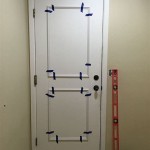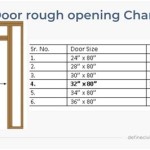Adding insulation to your interior walls is an excellent way to reduce your energy costs and make your home more comfortable. Insulation helps keep the heat in during the winter and the cool air in during the summer. It also helps to reduce noise from outside and can even help to improve the air quality in your home. By adding insulation to your interior walls, you can enjoy all these benefits and more.
How To Choose The Right Insulation For Your Home
When choosing insulation for your interior walls, there are a few factors to consider. First, you’ll want to determine the R-value of the insulation. The R-value is the measure of the insulating power of the material and is rated on a scale from R-1 to R-60. The higher the R-value, the more effective the insulation will be. You’ll also want to consider the type of insulation you’ll use. There are several types of insulation, including fiberglass, cellulose, and spray foam. Each type has its own advantages and disadvantages, so you’ll want to research which type is best for your home.
Preparing Your Walls For Insulation
Before you can add insulation to your interior walls, you’ll need to prepare the walls. This involves removing any existing insulation, removing any trim, and ensuring that the walls are clean and free of debris. You’ll also want to check for any water damage or other issues that could affect the installation. Once your walls are prepped, you can begin the installation process.
Installing Insulation In Your Walls
There are several ways to install insulation in your walls. Depending on the type of insulation you’ve chosen, you can either staple, glue, or use a spray foam to secure the insulation to the walls. You’ll also want to make sure that all the seams are sealed and that there is adequate overlap of the insulation. This will help to ensure that the insulation is effective and won’t allow any air leaks.
Benefits Of Adding Insulation To Your Interior Walls
Adding insulation to your interior walls has a number of benefits, including:
- Reduced energy costs: Insulation helps keep the heat in during the winter and the cool air in during the summer, so you can enjoy lower energy bills.
- Improved comfort: Insulation helps to keep your home at a more comfortable temperature year-round.
- Reduced noise: Insulation helps to reduce the noise from outside, making your home more peaceful.
- Better air quality: Insulation helps to reduce the amount of dust and other allergens in your home.
By adding insulation to your interior walls, you can enjoy all these benefits and more. With the right preparation and installation, you can enjoy a more comfortable and energy-efficient home.


/man-installing-insulation-182186960-583dfbb05f9b58d5b170a0ee.jpg)












Related Posts








